Solar energy is rapidly gaining popularity as a sustainable and renewable energy source. Among the many applications of solar technology, solar water heaters offer an efficient and eco-friendly way to heat water for residential and commercial use. In this summary, we will explore the 40-gallon solar water heater, its features, and benefits. 1. What is a 40-Gallon Solar Water Heater? A 40-gallon solar water heater is a type of solar thermal system specifically designed to provide hot water for domestic purposes. It utilizes solar collectors to absorb and convert sunlight into heat energy, which is then transferred to a storage tank for later use. The 40-gallon capacity refers to the volume of hot water that can be stored and dispensed at any given time. 2. Components of a 40-Gallon Solar Water Heater: a. Solar Collectors: These panels are usually installed on rooftops or other sun-exposed areas to harness sunlight. They are designed with materials that efficiently capture solar radiation and convert it into heat energy. b. Storage Tank: The 40-gallon storage tank holds the heated water until it is required for use. They are typically well-insulated to minimize heat loss. c. Heat Exchanger: A heat exchanger facilitates the transfer of heat from the solar collectors to the water in the storage tank. This ensures that the water is heated efficiently and consistently.
solar water
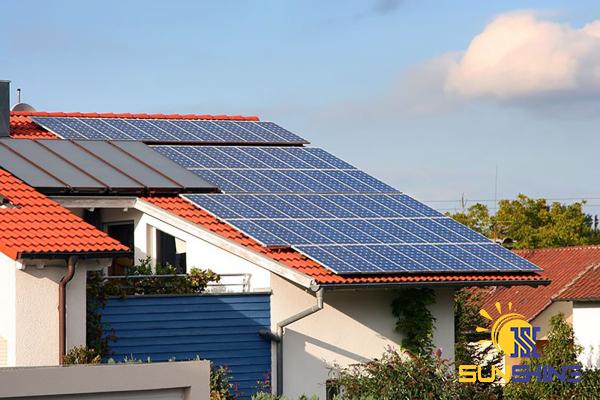 d. Circulation System: A circulation system, consisting of pumps and pipes, helps transport the heated water from the solar collectors to the storage tank and then to the desired point of use. 3. Operational Benefits: a. Energy Efficiency: By harnessing solar energy, a 40-gallon solar water heater reduces reliance on conventional energy sources, thereby lowering utility bills. Solar water heaters are estimated to be 50-80% more energy-efficient than traditional gas or electric heaters. b. Environmental Friendliness: The use of solar power significantly reduces greenhouse gas emissions associated with conventional water heating methods. A 40-gallon solar water heater produces zero direct emissions, contributing to a greener and more sustainable future. c. Reliable Performance: Solar water heaters can operate throughout the year, even during cloudy or overcast weather. Backup systems, such as electric or gas heating elements, can be integrated to ensure hot water availability during extended periods of low solar radiation. d. Lower Maintenance Costs: Compared to conventional water heaters, solar water heaters generally require minimal maintenance. Routine checks and cleaning are usually sufficient to ensure optimum performance and longevity. 4. Cost Considerations: a. Installation Costs: The cost of installing a 40-gallon solar water heater depends on several factors, including the complexity of the system, local labor rates, and any additional modifications required for integration. However, long-term cost savings in terms of reduced energy bills can help offset initial installation expenses. b. Incentives and Rebates: Many governments and utility companies offer incentives, tax credits, and rebates to promote the adoption of solar water heaters.
d. Circulation System: A circulation system, consisting of pumps and pipes, helps transport the heated water from the solar collectors to the storage tank and then to the desired point of use. 3. Operational Benefits: a. Energy Efficiency: By harnessing solar energy, a 40-gallon solar water heater reduces reliance on conventional energy sources, thereby lowering utility bills. Solar water heaters are estimated to be 50-80% more energy-efficient than traditional gas or electric heaters. b. Environmental Friendliness: The use of solar power significantly reduces greenhouse gas emissions associated with conventional water heating methods. A 40-gallon solar water heater produces zero direct emissions, contributing to a greener and more sustainable future. c. Reliable Performance: Solar water heaters can operate throughout the year, even during cloudy or overcast weather. Backup systems, such as electric or gas heating elements, can be integrated to ensure hot water availability during extended periods of low solar radiation. d. Lower Maintenance Costs: Compared to conventional water heaters, solar water heaters generally require minimal maintenance. Routine checks and cleaning are usually sufficient to ensure optimum performance and longevity. 4. Cost Considerations: a. Installation Costs: The cost of installing a 40-gallon solar water heater depends on several factors, including the complexity of the system, local labor rates, and any additional modifications required for integration. However, long-term cost savings in terms of reduced energy bills can help offset initial installation expenses. b. Incentives and Rebates: Many governments and utility companies offer incentives, tax credits, and rebates to promote the adoption of solar water heaters.
Specifications of solar water
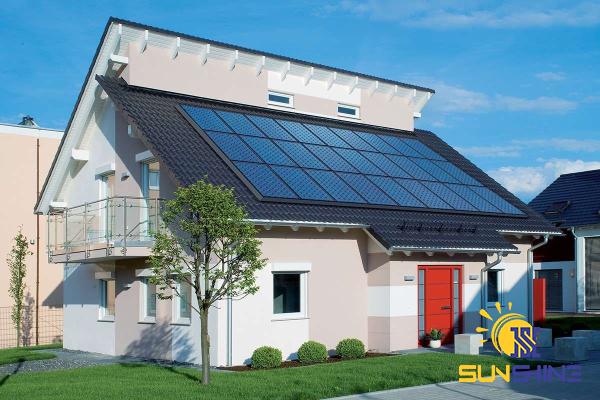 These financial incentives can help reduce the upfront costs and make the investment more attractive. c. Return on Investment (ROI): Depending on various factors, such as energy consumption, location, and local energy rates, a 40-gallon solar water heater can provide a satisfactory return on investment. In most cases, the payback period ranges from 4 to 10 years, after which the savings continue to accumulate. 5. Sizing and Installation Considerations: a. Household Size: The 40-gallon capacity is suitable for households with 3 to 4 members. For larger households, a larger capacity may be required. b. Orientation and Space: Solar collectors should be properly oriented to maximize sunlight exposure. Additionally, adequate space should be available for installation, depending on the type of mounting system chosen. c. Professional Installation: Proper installation by a certified technician ensures optimal performance and safety. It is crucial to comply with local building codes and regulations during the installation process. 6. Potential Challenges: a. Initial Investment: While solar water heaters offer long-term cost savings, the initial upfront investment can be a deterrent for some homeowners. However, the financial incentives available and the potential for greater energy bill savings offset this to a large extent.
These financial incentives can help reduce the upfront costs and make the investment more attractive. c. Return on Investment (ROI): Depending on various factors, such as energy consumption, location, and local energy rates, a 40-gallon solar water heater can provide a satisfactory return on investment. In most cases, the payback period ranges from 4 to 10 years, after which the savings continue to accumulate. 5. Sizing and Installation Considerations: a. Household Size: The 40-gallon capacity is suitable for households with 3 to 4 members. For larger households, a larger capacity may be required. b. Orientation and Space: Solar collectors should be properly oriented to maximize sunlight exposure. Additionally, adequate space should be available for installation, depending on the type of mounting system chosen. c. Professional Installation: Proper installation by a certified technician ensures optimal performance and safety. It is crucial to comply with local building codes and regulations during the installation process. 6. Potential Challenges: a. Initial Investment: While solar water heaters offer long-term cost savings, the initial upfront investment can be a deterrent for some homeowners. However, the financial incentives available and the potential for greater energy bill savings offset this to a large extent.
buy solar water
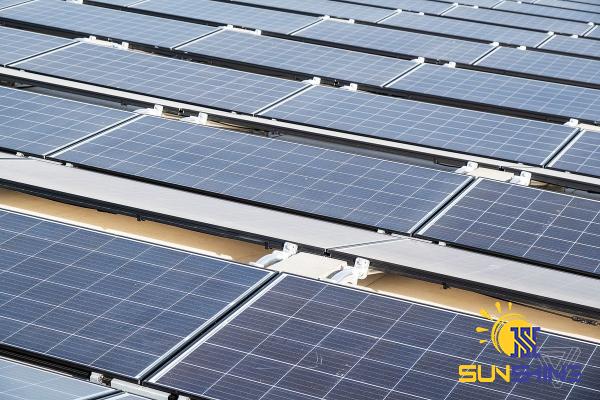 b. Weather Dependence: The performance of a solar water heater is influenced by weather conditions. Locations with less consistent sunlight may experience lower efficiency and require additional backup heating systems. c. Space Constraints: Some households may face space limitations, making it challenging to install solar collectors. However, innovative mounting options, such as roof-integrated or ground-mounted systems, can help overcome such constraints. Conclusion: The 40-gallon solar water heater offers an environmentally friendly and cost-effective solution for heating water in residential and commercial settings. By harnessing the abundant power of the sun, these systems provide reliable performance while significantly reducing energy consumption and associated greenhouse gas emissions. Despite some initial investment and potential weather-related challenges, solar water heaters have the potential to revolutionize the way we heat water, making sustainable living more accessible and affordable.
b. Weather Dependence: The performance of a solar water heater is influenced by weather conditions. Locations with less consistent sunlight may experience lower efficiency and require additional backup heating systems. c. Space Constraints: Some households may face space limitations, making it challenging to install solar collectors. However, innovative mounting options, such as roof-integrated or ground-mounted systems, can help overcome such constraints. Conclusion: The 40-gallon solar water heater offers an environmentally friendly and cost-effective solution for heating water in residential and commercial settings. By harnessing the abundant power of the sun, these systems provide reliable performance while significantly reducing energy consumption and associated greenhouse gas emissions. Despite some initial investment and potential weather-related challenges, solar water heaters have the potential to revolutionize the way we heat water, making sustainable living more accessible and affordable.
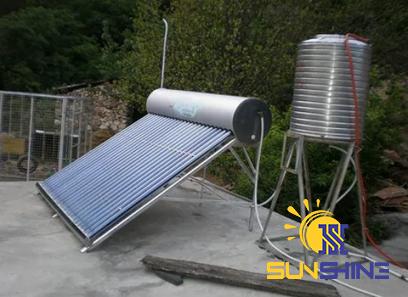
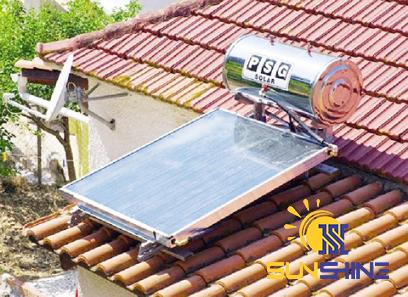
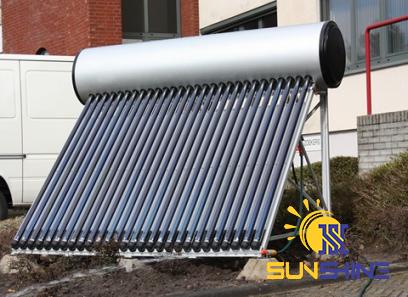
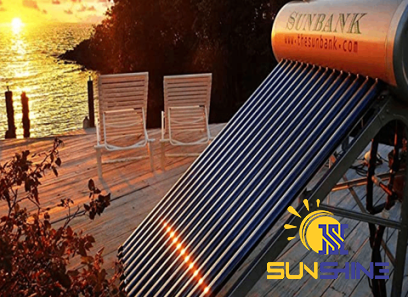
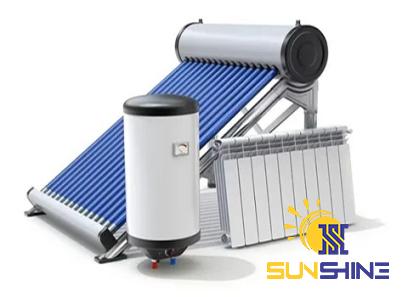
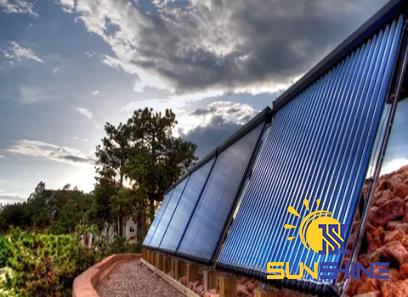
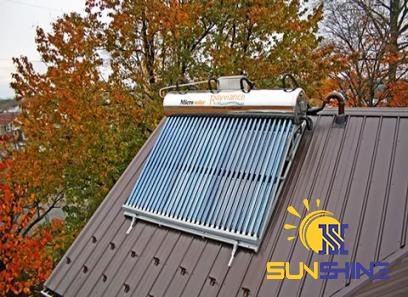
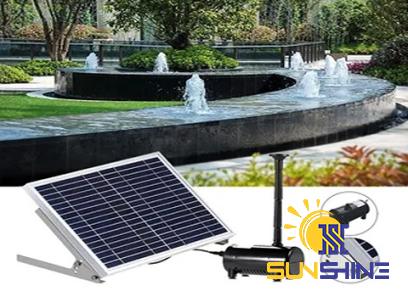
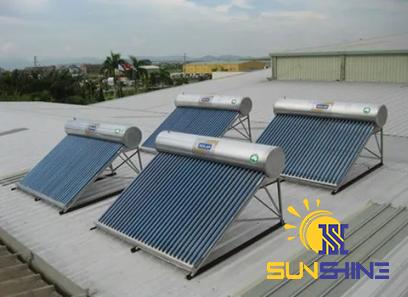
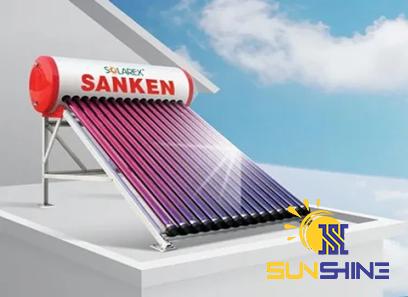
Your comment submitted.